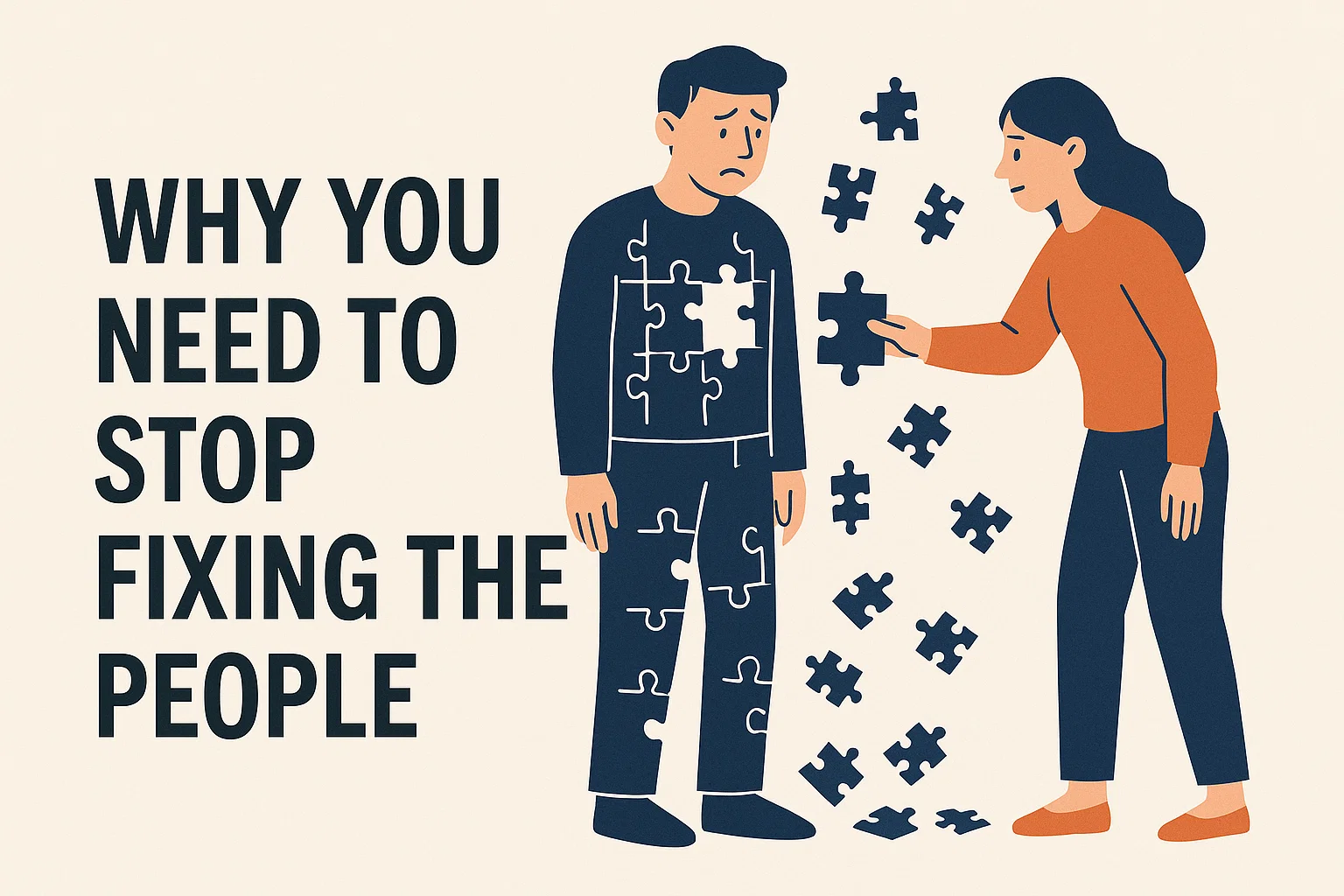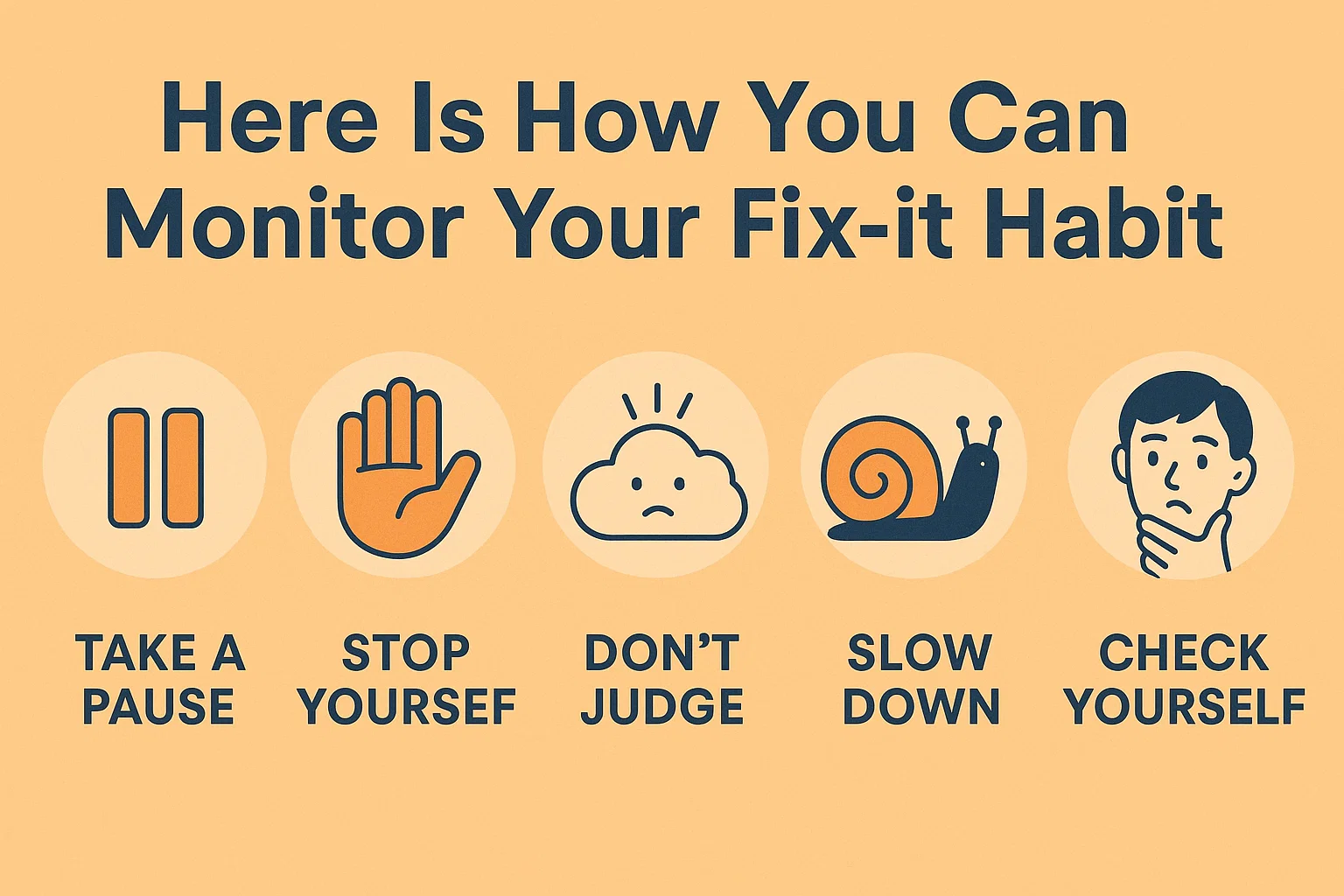Why You Need to Stop Fixing the People
Author: Team xMonks | Published on: Wed, 26 May 2021

What is one of the most coveted praises for many leaders? That we are capable of problem-solving. It's a commendable quality, implying the willingness to negotiate, make difficult choices, and persuade others to our point of view.
However, not every "problem" can be solved, particularly when it comes to the day-to-day task of guiding others.
We occasionally view employee situations as problems to be solved as well. Taking a fix-it attitude, no matter how well-intentioned, can be harmful not only to our own success as leaders but also to the development of those we lead.
Recognizing when practical advice becomes impractical fixes will assist leaders in breaking the fix-it habit.
To Lead, You Don’t Have to Fix Everything (and Everyone)

True leadership is the ability to lead others. It cannot and should not complete the task for anyone. Your workers lose because they don't learn, and you lose because you don't teach.
One of the most difficult habits to break is the need to "fix" others.
When the "fixes" are just that—temporary band-aids that don't foster learning—you're not leading.
Great leaders, on the other hand, recognize that attempting to fix an individual never succeeds for a variety of reasons. Here are a few of the most important:
- It promotes distrust. Leadership should be about helping people rather than attempting to fix them. Trying to fix others can breed resentment, leading to a toxic environment.
- It isn't motivating. Being told you need to be "fixed" by a leader can be demotivating, leaving individuals feeling unrecognized and disengaged.
Here Is How You Can Monitor Your Fix-it Habit
- Take a pause. Stop before jumping in and correcting others. Gather your thoughts and guide rather than fix.
- Stop yourself from telling other people what to do. Lead by example, collaborate, and navigate instead of dictating.
- Don't judge when work isn’t completed well. Instead of judging, ask questions to help individuals improve their approach.
- Slow down when you want to go fast. Leadership is about setting a pace others can follow, not rushing ahead alone.
- Check yourself when you think you know how to do it better. Allow others to contribute and express their ideas.
- Great leaders are adaptable. Leadership isn't about proving how much you know; it's about enabling others to shine.
Start Creating the Space for Growth
Leaders, family members, and friends should create an environment where people feel safe to express themselves without fear of judgment.
Fixing others can become a negative self-identity, where personal sacrifices are made in pursuit of an unrealistic ideal of saving others.
Leadership should not be about endless sacrifices but about fostering growth through awareness and curiosity.
Be patient, stay curious, and create space for those around you to grow and express themselves.
Frequently Asked Questions
What does “stop fixing people” mean in coaching?
It means empowering clients to find their own solutions rather than imposing fixes, fostering self-reliance.
Why is fixing people ineffective?
It undermines client autonomy, reducing their confidence and hindering lasting change.
How does xMonks’ coaching approach this?
xMonks, via Erickson’s methods, uses solution-focused techniques to guide clients to their own answers.
Who benefits from this coaching philosophy?
Coaches and clients seeking sustainable growth, especially in professional or personal development.
How can I adopt this approach?
Enroll in xMonks’ ICF-accredited programs, like TASC, to learn empowering coaching techniques.




.png)